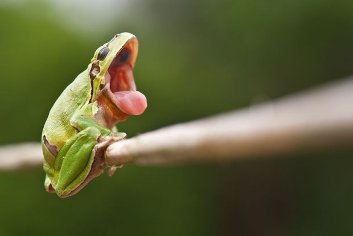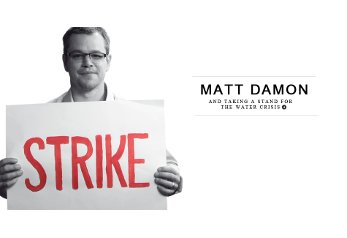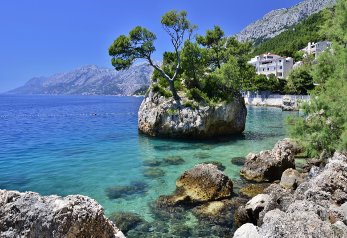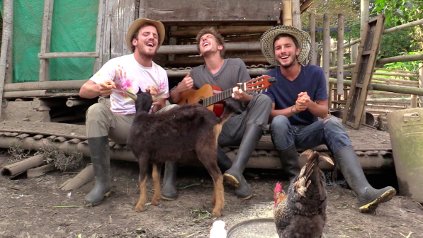
If anyone knows first-hand what the global climate crisis is all about, it’s the people who live in the Philippines. In 2013, Super Typhoon Haiyan, the second-strongest tropical cyclone to hit the Eastern Hemisphere, slammed the island nation with winds of 195 miles/hour, leaving 6,300 dead.
It was a devastating event. But the nation of islands is fighting back.
Inspired by the country’s high level of local autonomy, 200 municipalities in the Philippines are taking the extraordinary step of signing an agreement among themselves, and with Regeneration International (RI), to create new policies that both recognize soil health as a powerful tool in addressing the climate crisis and reward farmers for drawing down greenhouse gas emissions and sequestering them in their soil.
When fully implemented in 2022, the agreement will cover 1.2 million hectares of land—almost 3 million acres. As a representative of RI, I’ve had the good fortune to be involved in this unprecedented endeavour almost from its beginning.
The plans for this project culminated June 14, at the 11th General Assembly of the Filipino League of Organic Municipalities Cities and Provinces (LOAMCP), where I gave a presentation on agricultural climate mitigation and signed a Memorandum of Understanding between LOAMCP and RI, dubbed the “Regeneration Philippines (RP)” Memorandum.
This story really began back in 2017, in my London office when I received a call from a business contact in the Philippines who was working with LOAMCP (at the time it was LOAMC). He said, “Oliver, I think I have something newsworthy for you.” Then he passed me on to a contact who asked whether I could help generate press on an event that was happening during the 2017 AGRILINK trade fair, one of Asia’s biggest agricultural trade fairs.
Assuming he was going to pitch me on the latest industrial chicken feeding unit, I said, “Okay, great, who do you represent and what’s the event?”
“My name is Patrick Belisario of the Organic Producer and Trade Association of the Philippines,” he said. “We work with a group of 200 mayors who are going to sign an agreement to implement new laws in their constituencies that would ban the use of toxic agrichemicals and genetically modified organisms (GMOs).”
I paused a second and said, “Really? How would that work?”
He then explained that local governments in the Philippines could write their own laws without going through the central government (a bit like in the U.S., but very different from other Asian countries).
As it happened, it turned out to be both an interesting, and an exclusive, news tip.
Three months later I flew to the event to produce video coverage of the signing ceremony, which took place at the home of one of the most influential senators in the Philippines, Senator Cynthia Villar.
It was there that I met with the Hon. Rommel C. Arnado, mayor of the city of Kauswagan Lanao Del Norte on the Island of Mindanao and president of the League of Organic Municipalities and Cities (which has since expanded to Provinces). During an interview with Mayor Arnado I quickly learned that these policymakers were deadly serious. The use of toxic agrichemicals and GMOs is not allowed, he told me, and we have sanctions in place that could lead to imprisonment for those who break the laws.
Mayor Arnado’s community had suffered decades of heavily armed conflict, and through tough politics of care for his people, he put in place an award-winning conflict resolution and insertion program, “From Arms To Farms,” that brought Christian and Islamic rebel fighters to surrender a part of their arsenal in exchange for education around organic food and farming, made available to all.
Mayor Arnado has since become a world leader for the organic movement, one who doesn’t mince his words and who puts radical action in place for the highest benefit of his citizens’ health and wealth.
Our coverage of the event was a success—we produced a three-minute video that reached more than 1 million people worldwide.
In 2019, I headed back to the Philippines to visit the Arms To Farms program and produce coverage for ‘Trails of Regeneration,’ an ongoing RI series produced in collaboration with Kiss the Ground.
During my trip I met up with LAOMCP Executive Director, agronomist and farmer Victoriano Tagupa, whom I had met in 2018 through the International Federation of Organic Agriculture Movements (IFOAM)[LR2] Asia at a summit of the Asian Local Governments for Organic Agriculture.
Victoriano—nicknamed Vic 1.0, as there are two other Vics in his family—is a true soil advocate. On his farm on the Filipino island of Mindanao, Tagupa combines biodynamics and natural agriculture within a fully integrated system using indigenous seeds, cover crops and holistic livestock management. In an interview, Tagupa said LOAMCP had a plan to convert 1.2 Million hectares of land to completely organic production by 2022. Tagupa discussed the significance this would have in mitigating and adapting to climate change, and about the possible needs and opportunities to implement new policies to train and reward farmers.
One month later Tagupa and I met again, but this time it was in Japan with Andre Leu, RI’s international director, for “Agriculture is the Solution to Climate Change,” an event organised by the Japanese Ministry of Agriculture, Forestry and Fisheries and the 4 per 1000 Initiative. Before the event, Tagupa, Leu and I worked together on a joint presentation promoting rice intensification systems.
At that event we quickly identified how LOAMCP could be instrumental in contributing to new policies on agricultural climate mitigation and could help inspire the international community through the 4 per 1000 Initiative.
Things progressed further when LOAMCP invited RI to give a presentation at the next LOAMCP General Assembly, and Tagupa and I suggested we sign an MoU that would contain all the elements we had been discussing. So, I got onto my laptop and drafted the “Regeneration Philippines” Memorandum, which was then sent to the RI board of directors, where it received swift approval.
I then flew to Bislig City for the LOAMCP General Assembly and met with LOAMCP’s officers before the day of the event to present to them the freshly minted “Regeneration Philippines” Memorandum. The memorandum content was adopted by the entire assembly. Many LOAMCP members were very supportive of LOAMCP moving beyond protecting the public from dangerous agrochemicals and into directly confronting the dangers of climate change.
At the General Assembly I was able to point out the pressing issues we face with the climate crisis, its threat to human civilization and the need to act fast. I then showcased how by using regenerative agriculture to switch back on the soil microbiome, we can turn conventional farms into carbon sinks. I also spoke of the great hope that farmers represent in mitigating climate change through soil health. I also presented the 4 per 1000 Initiative—its purpose, its background and RI’s involvement—followed by the 4p1000 video “Farmers for Climate,” and an account of our[LR1] recent LOAMCP RI trip to Japan with 4p1000.
I discussed the great potential LOAMCP could have in helping shape new policies on agricultural climate mitigation by using the 4p1000 framework, and then the LOAMCP officers and I presented the MoU. I it read aloud and asked the audience whether anyone had any objections, comments or suggestions. Hearing no objections from the audience, we launched the signing ceremony with LOAMCP President, Mayor Rommel Arnado.
LOAMCP has become a powerful organization in the Philippines, and this year it has expanded from the island nation’s cities and municipalities to its provinces. LOAMCP is an important organization that brings lawmakers together to protect human health and the environment from corporate greed in the agricultural sector.
There is an organic agriculture law in the Philippines that requires 5 percent of all the country’s farmland to be organic, and many in LOAMCP are fighting to push that figure to 100 percent. In a very encouraging move, the Department of the Interior for Local Governments (DILG) has officially asked every municipality in the Philippines become a LOAMCP member.
This development is particularly interesting, as it came just a few weeks after the Filipino government announced $614 million USD in subsidies for synthetic fertilizers and pesticides originating from Qatar—and Mayor Librado Navarro of Bislig City opened his address to the LOAMP 11th General Assembly by stating that under his mandate, Bislig will never accept these subsidies. Navarro’s comments were welcomed with an uproar of cheers and applause from the General Assembly.
In more good news, RI and LOAMCP are now collaborating to create “Regeneration Philippines,” a branch within LOAMCP designed to help steer LOAMCP’s efforts toward concepts of, and implementation of, regenerative agricultural development. LOAMCP’s next general meeting will be in November 2019 in Cebu, Philippines. RI plans at that meeting to officially launch Regeneration Philippines and set up a Regeneration Philippines office alongside those of LOAMCP and IFOAM Asia.
With the climate crisis bearing down on the Philippines, the country is taking bold steps to confront the crisis. The future looks good for these efforts to forge a national consensus around regenerative agriculture as a key factor in climate mitigation.
Oliver Gardiner represents Regeneration International in Europe and Asia.












